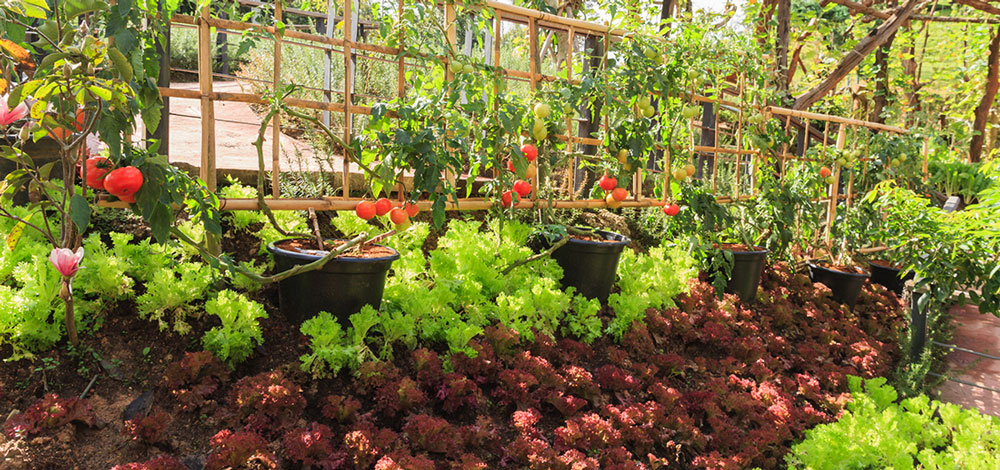September Gardening
When spring is first sprung
Welcome to spring!
The daffodils are out, Spring blossom is abundant, the days are brighter and warmer, and I just can’t wait to venture into the garden.
As I walk through the garden centre I can’t help getting a whiff of the beautiful daphne. These highly fragrant plants have a powerful sweet scent and are available in pink or white flowers – a must have for every garden and can be grown in a pot!
Another fragrant beauty at this time of year is the brown boronia (boronia megastigma). One of the most loved fragrances of spring and always a winner, though they do have a reputation of being a short lived shrub.
Its important to know that they are an Australian bog plant and therefore enjoy a cooler semi-shaded place in the garden. Many of us kill them with kindness by planting them in the warmest sunniest spot in the garden which, consequently, causes their roots to frizzle in the all-day sun.
If the scent of sweet peas are special to you we also have an enchanting selection of Dr Hammet perfumed sweet pea plants as well as old fashioned favourites.
There is a bit of preparation required to get your garden in shape as we shed the winter coat and embrace the spring season but, don't worry, the effort required is not too taxing.
The Veggie Garden
Prepare the vegetable garden by digging in plenty of compost, rake the ground level then leave for a few days to allow the sun to warm the soil before planting.
Potatoes
Plant a few early potatoes such as jersey benne, liseta, rocket or swift and you will be enjoying new potatoes at Christmas. Plant them in a row approximately 15cm in depth and about 25cm apart with sprouts pointing upwards. As the potato grows it is important to mound the soil up over the emerging leaves for as long as you can, because the new potatoes are produced on their stems.
Lettuce
Plant lettuces every three or four weeks from spring to late summer so you have a continual supply. Regular watering is needed during the summer months for a sweet mild flavour as dryness will give them a bitter taste. Lettuces are the slugs and snails favourite snack so don’t forget to scatter some Tui Quash Slug and Slug Control.
Carrots & Parsnips
Carrots and parsnips need to be sown in soil that is deep and well drained then thinned to 10cm apart when quite small.
Onions
Onions grow best in well worked soil that has been firmed down before the seed is sown. Sow onions in a position that receives all day sunshine to give them the best chance to bulb up and ripen.
Tomatoes
Tomato plants are now available so those with a greenhouse get a head start! Choose tomato plants that have a short space between leaf joints. Plants that are tall and puny have been grown in overcrowded conditions stretching for light and will never thrive or fruit well.
Soil
With the days warming up and, as we prepare for the growth spurt of spring, the very best thing you can be doing is looking after your soil.

Greenhouse soil
Complete changing of the soil within the Greenhouse should not be an issue unless over time disease has become more of a problem. Soil can become depleted of nutrients so plenty of Nichol’s Compost and Tui Tomato Mix worked into the soil can boost it back into life. Soil, like us, can get tired and sick but if it is fed regularly it will keep healthy and produce healthy plants.
Garden soil
Just at the moment there is quite a lot of soil exposed with the veg garden not yet planted and so many perennials and shrubs in the garden still dormant. Here we have an opportunity to spread compost and turn over the veg beds before growth starts happening with the onset of Spring.
I have a bigger garden with lots of deciduous trees and find a composting system of three bins works well for me. I have one currently in use, another decomposing and a third on the receiving end of the kitchen waste and garden rubbish. A cool dry spring day is an ideal opportunity to get stuck into turning compost and shifting it out in the beds. Turning it over helps break it down quicker and, if you have a smaller garden, a Tumbleweed Composter will do the turning for you, Magic!
My compost was alive with worms doing their thing, and plenty of industrious little slaters munching their way through the tough dry stuff. I often have queries about slaters in the glass house, people mistake them for pests because they are quite prolific in that warm dry environment, but they are part of the composting chain, doing a vital job disposing of the woody material.
If you're interested in composting and creating your own, our Composting & Mulch article has lots of information for you.
We hope to see you in store soon.
Happy Spring!
Rhys, GM, Nichol’s Dunedin

11335